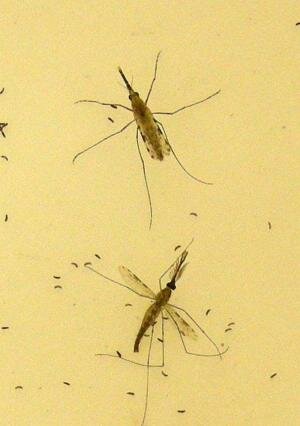Malaria Threat Is as Old as Humanity
New research by scientists funded by the Biotechnology and Biological Sciences Research Council (BBSRC) shows that malaria is tens of thousands of years older than previously thought.
An international team, led by researchers at Imperial College London, have found that the potentially deadly tropical disease evolved alongside anatomically modern humans and moved with our ancestors as they migrated out of Africa around 60-80,000 years ago.
The findings and the techniques in the study could be important in informing current control strategies aimed at reducing the prevalence of malaria. There are an estimated 230 million cases each year, causing between 1 and 3 million deaths, and around 1.4bn people are considered to be at risk of infection.
Dr Francois Balloux from the Medical Research Council (MRC) Centre for Outbreak Analysis and Modelling at Imperial College London was lead researcher on the project. He said: "Most recent work to understand how malaria has spread across the tropics has worked on the premise that the disease arose alongside the development of agriculture around 10,000 years ago.
Our research shows that the malaria parasite has evolved and spread alongside humans and is at least as old as the event of the human expansion out of Africa 60-80,000 years ago."
The international team worked on the largest collection of malaria parasites ever assembled. By characterising them by DNA sequencing they were able to track the progress of malaria across the tropics and to calculate the age of the parasite. The scientists discovered clear correlation of decreasing genetic diversity with distance from sub-Saharan Africa. This accurately mirrored the same data for humans suggesting strong evidence of co-evolution and migration.
Dr Balloux said: "The genetic sequencing of the malaria parasite shows a geographic spread pattern with striking similarities to studies on humans.

"Anopheles gambiae mosquitoes - the principal vector of malaria in Africa. (Credit: CDC/Mary F. Adams, MA, MS)"
Source: Biotechnology and Biological Sciences Research Council
|